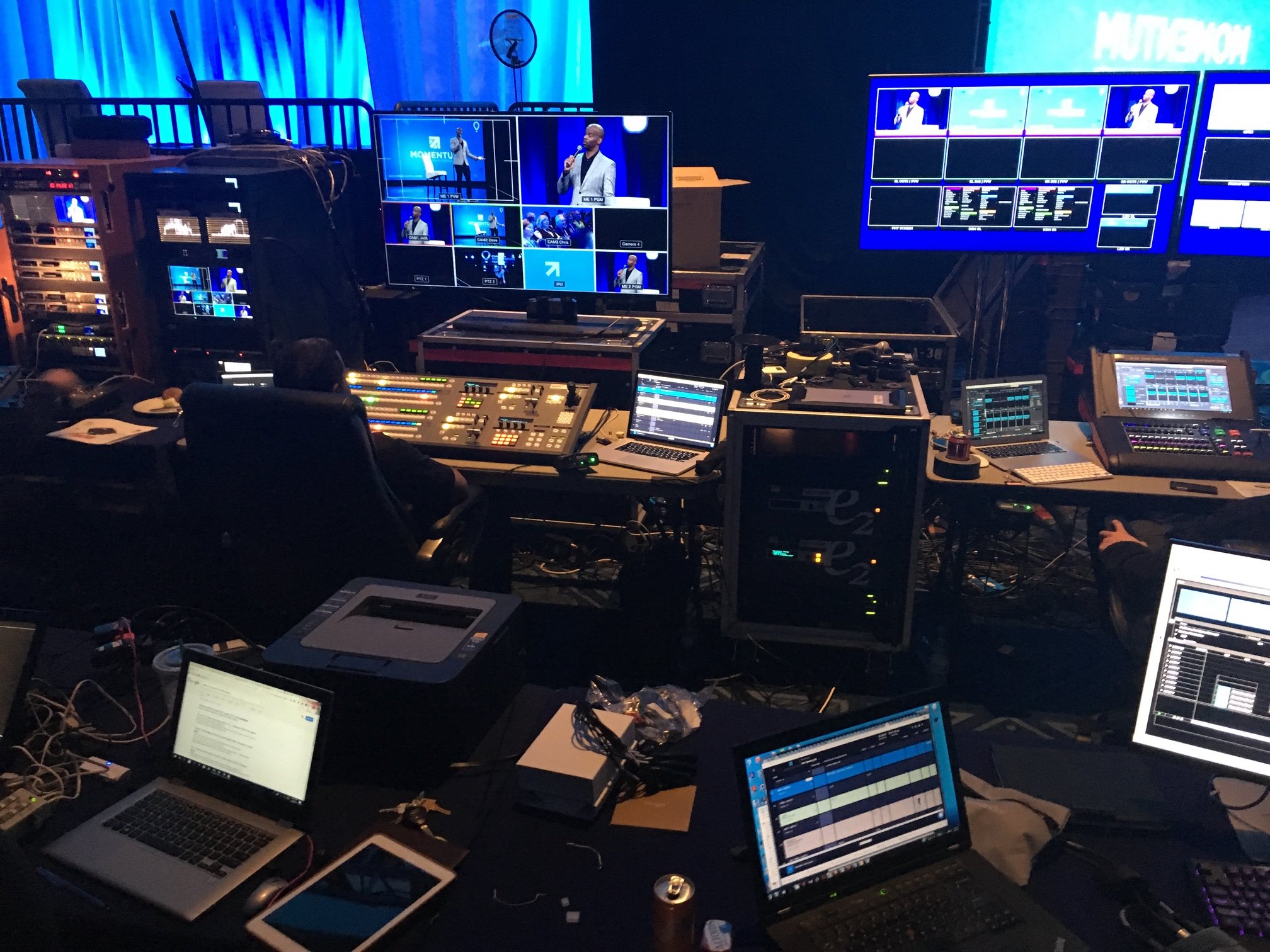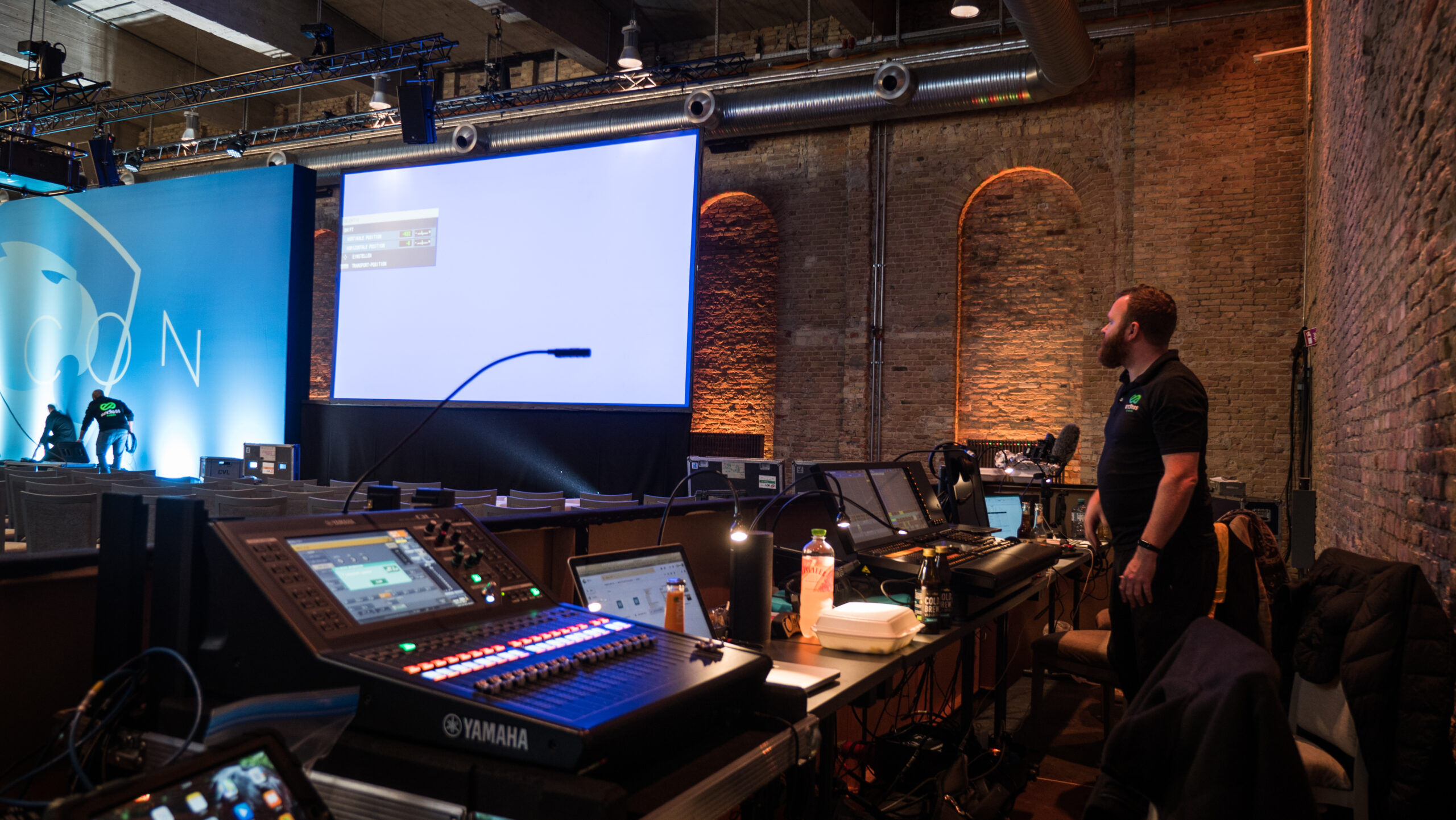Exactly How Event Production Works: A Comprehensive Consider the Refine
Event production is a complex and organized process that needs careful planning and implementation. It starts with developing clear goals and recognizing the target audience. Each step, from budgeting to venue selection, plays a vital duty in guaranteeing success. As the process unfolds, different aspects must straighten seamlessly. The nuances of this elaborate operation typically go undetected. What are the key stages that contribute to an unforgettable event?

The Initial Preparation Phase
When starting on event production, cautious planning is important to guarantee a successful result. The initial preparation phase functions as the structure for all subsequent initiatives. Throughout this phase, event producers have to specify the event's function and goals clearly. Determining the target audience helps tailor the experience and messaging, assuring importance and engagement.Producers have to also think about the event layout, whether it be in-person, virtual, or hybrid, as this will affect various logistical aspects. Selecting an ideal day and location is crucial, as it impacts availability and availability.Furthermore, putting together a trusted team is essential for dividing responsibilities and simplifying communication. Developing a timeline with turning points assurances all jobs are completed on timetable. This phase entails detailed study, including identifying prospective difficulties and developing approaches to reduce dangers. Ultimately, a well-structured preliminary preparation phase establishes the tone for an effective event production journey.

Budgeting and Resource Allotment
In event production, effective budgeting and resource allocation are crucial for success - event production charlotte. Establishing financial specifications sets the foundation for all succeeding decisions, while source circulation strategies ensure that every element of the event is effectively supported. With each other, these components help maintain control over expenditures and enhance using readily available resources
Establishing Financial Parameters
Establishing monetary criteria is important to the success of any type of event production, as it establishes the structure for reliable budgeting and resource appropriation. This process starts with specifying the total spending plan, which incorporates all facets of the event, including venue costs, food catering, and marketing. By recognizing readily available funds, event planners can focus on expenditures and designate resources accordingly. On top of that, it is necessary to carry out extensive market research to expect possible costs and identify financing resources, such as sponsorships or ticket sales. Establishing clear financial specifications likewise help in threat administration, permitting planners to allot contingency funds for unanticipated expenditures. Ultimately, a distinct budget functions as a roadmap, assisting the event production group towards accomplishing their goals while maintaining economic control.
Source Distribution Strategies
Effective source distribution methods are crucial for optimizing the impact of an event while sticking to budget constraints. Successful event production requires a meticulous method to budgeting and source appropriation. Planners must prioritize crucial components such as place, event catering, and modern technology, guaranteeing that funds are alloted to areas that boost attendee experience. A thorough budget must lay out expected expenses and recognize locations for possible price savings, such as negotiating with vendors or discovering sponsorship opportunities. Additionally, tracking expenses throughout the planning process helps stop overspending. By using strategic source circulation, event manufacturers can provide an unforgettable experience while maintaining fiscal duty, inevitably contributing to the overall success of the event.
Venue Choice and Logistics
Choosing the right venue is necessary to the success of any kind of event, as it sets the stage for the overall experience. Place option entails assessing numerous aspects, consisting of capability, availability, and location. Coordinators must think about the target market and the nature of the event, ensuring the place straightens with the event's goals.Logistics play a considerable duty in this process, including arrangements for seats, audiovisual devices, and catering solutions. A well-chosen place must promote smooth circulation for attendees and team, improving engagement.Additionally, reviewing possible venues for features like auto parking, washrooms, and emergency situation exits is essential for safety and convenience. The timeline for safeguarding the venue is likewise critical, as popular places might schedule promptly - event production charlotte. Complete preparation and timely execution can inevitably contribute to a seamless event experience, making place option and logistics essential elements of successful event production.
Creative Principle Advancement
While the place sets the physical stage, innovative principle advancement shapes the event's identity and story. This procedure begins with recognizing the event's function and target audience, permitting event manufacturers to formulate a compelling style that reverberates with attendees. Conceptualizing sessions commonly include varied perspectives, cultivating ingenious ideas that align with the event's goals.Once a theme is developed, aesthetic components such as color combinations, signage, and decor are designed to boost the total environment. Storytelling methods may also be incorporated to create an engaging trip for participants, ensuring a memorable experience. Additionally, factors to consider relating to enjoyment, tasks, and interactive elements are straightened with the selected principle, strengthening the motif throughout the event.Ultimately, effective innovative concept development warranties that every facet of the event functions cohesively, leaving an enduring impact on attendees and meeting the event's purposes. This foundational job prepares for succeeding planning and implementation stages.
Collaborating With Suppliers and Providers
Successful event production rests on effective cooperation with suppliers and vendors. Selecting trusted companions, working out contracts properly, and guaranteeing timely shipments are critical action in this process. Each of these factors contributes significantly to the total success and smooth implementation of an occasion.
Choosing Reliable Partners
How can event coordinators assure a seamless production experience? Picking trusted partners is crucial in accomplishing click here for more info this goal. Event organizers should conduct complete research study to determine suppliers and suppliers with a tried and tested record of quality. This consists of inspecting referrals, evaluating portfolios, and assessing consumer responses. Coordinators must focus on partners that demonstrate professionalism, timely interaction, and a readiness to work together. Structure strong partnerships cultivates trust fund and makes it possible for fast analytic during the event. Furthermore, it is beneficial to select regional vendors who recognize the venue and regional logistics. Eventually, an effective event pivots on the synergy in between planners and their partners, guaranteeing that every aspect of production runs efficiently and efficiently.
Discussing Agreements Effectively
Effective negotiation of contracts is a crucial action in the cooperation in between event organizers and their vendors and providers. This procedure involves clear interaction of expectations, deliverables, and timelines. Organizers ought to conduct complete research study on market prices and market criteria to develop a baseline for negotiations. It is very important to create a collective environment, encouraging open dialogue concerning terms, pricing, and possible backups. Coordinators ought to also focus on comprehending the supplier's capabilities and restrictions to straighten their needs effectively. Flexibility can lead to mutually valuable arrangements, promoting long-lasting relationships. Crafting well-defined contracts that include specific performance metrics can assist assure liability, ultimately leading to successful event implementation and satisfaction for all celebrations entailed.
Making Sure Timely Distributions
Prompt distributions are necessary for the smooth execution of any type of event, calling for attentive cooperation between coordinators and their suppliers and suppliers. Effective communication is crucial, as it aids develop clear assumptions pertaining to distribution schedules, amounts, and specific demands. Planners often develop comprehensive timelines to detail essential landmarks, making certain all celebrations remain straightened throughout the process. Regular check-ins with suppliers can help identify potential hold-ups early, enabling positive services. Furthermore, building strong relationships with dependable suppliers fosters count on and accountability, which can result in much better service and prioritization. By prioritizing these collaborative efforts, planners can reduce disruptions, consequently improving the general effectiveness of event production and making sure that all required products and services arrive as planned.
Advertising And Marketing and Promo Approaches
While organizing an occasion, the success of marketing and promo approaches can greatly affect attendance and engagement. Efficient strategies typically include a mix of electronic marketing, traditional advertising and marketing, and grassroots outreach. Your Domain Name Utilizing social networks systems permits real-time interaction and targeted marketing, getting to specific demographics efficiently. Email advertising projects can even more engage potential participants with individualized web content and reminders.Collaborations with influencers or market leaders can also enhance integrity and broaden reach. Producing engaging web content, such as video clips or blogs, assists to create buzz and suffer rate of interest leading up to the event. Additionally, leveraging early-bird discount rates and special advantages can incentivize ticket purchases.Promoting with traditional networks, such as posters or regional media, remains pertinent, particularly in community-focused events. An extensive approach that integrates multiple methods guarantees optimum visibility and involvement, inevitably adding to the event's success and the creation of an unforgettable experience for participants.
On-Site Execution and Administration
On-site implementation and management are necessary parts that figure out the overall success of an occasion. Reliable sychronisation during the event ensures that all aspects align with the planned schedule. Event managers oversee logistics, including vendor coordination, devices configuration, and visitor services. Checking timelines and addressing any kind of unforeseen concerns are basic for maintaining a smooth experience.The team plays a considerable function, as experienced personnel are accountable for various tasks such as enrollment, information circulation, and technical support. Interaction among team members is critical; it fosters a joint atmosphere and enables quick resolution of challenges.Additionally, safety and security protocols should be followed, protecting the wellness of all attendees. Post-event analyses are additionally component of on-site monitoring, offering understandings for future renovations. By concentrating on these aspects, event manufacturers can develop memorable experiences that fulfill or go beyond attendee assumptions while attaining the event's objectives.
Often Asked Concerns
How Do I Pick the Right Event Theme?
Choosing the ideal event theme includes considering the target audience, event objective, and place. Looking into existing patterns and collecting input from stakeholders can also motivate creative concepts that resonate and create an unforgettable experience.

What Are Typical Mistakes in Event Production?
Typical errors in event production frequently include poor preparation, inadequate interaction among why not try this out staff member, budget plan mismanagement, overlooking to think about the target market's demands, and failing to conduct an extensive post-event examination for future improvements.
Just How Can I Measure Event Success?
To determine event success, one can analyze attendee satisfaction, interaction degrees, budget adherence, and post-event feedback. Trick performance signs, such as ticket sales and social media sites interactions, also provide useful understandings right into total effectiveness.
What Should I Do if It Moistens the Event Day?
In the event of rainfall on the day, the coordinator needs to execute backup plans, such as securing tents or moving activities inside. Communication with guests about adjustments is vital to assure a smooth experience regardless of weather condition obstacles.
How Can I Guarantee Participant Interaction Throughout the Event?
